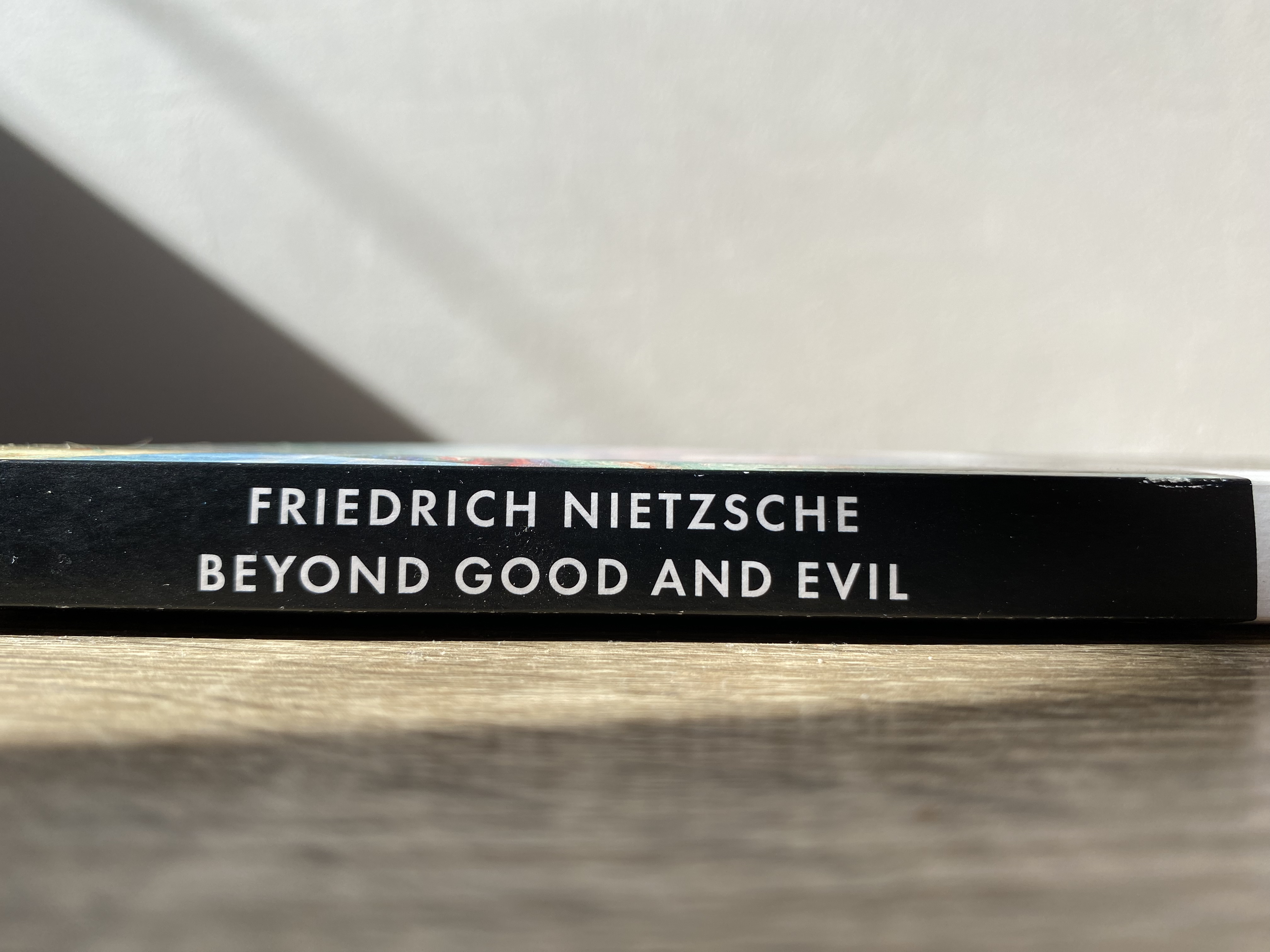The following statements represent my personal reflections on Friedrich Nietzsche and his work, ‘Beyond Good and Evil’. The aim is to deepen my understanding of his philosophical contributions, and I welcome any criticisms and comments. The analysis below focuses on lines 12, 13, and 14 from chapter one of the book, titled ‘On the Prejudices of Philosophers’.
Line 12 of ‘On the prejudices of philosophers’: A message to the future Psychologist.
There is no doubt new knowledge of atoms has shaped our thinking and helps us see the world in a deep and profound way, an amazing discovery by human beings. Nietzsche opened the conversation in line 12 with praises to the new ‘materialism atomism’ of his time, citing the work of two great scientists Pole Boscovich and Pole Copernicus, showing himself as a great admirer of these two. Due to their great revelation, our way of thinking was forever changed. As a result, we moved away from the idea of God and God’s rule over the world to the notion that we are the ruler of the world. We as a species had conquered and prevailed our senses, we no longer bowed to just what we see and feel, we had grasped the power to control it. This defeated his modern time perspectives of physics, the biggest “Triumph over the senses.”
Consequently, from this victory, he wanted to step further and challenge modern thinking of psyche. This involves the concept of the ‘soul’ as a form of the atomic, which was taught by Christianity. In its old form the soul was “…something that is indestructible, eternal, indivisible, as a monad, as an atomic.” In Nietzsche’s belief, we cannot break the soul down and study using the method of atomism, which means to study a soul through analysis of precise separate parts. This should no longer be the case. Nietzsche suggested the opposite, that the soul is something that involves passion, emotion, instinct, which can not be dependent on one single factor. While these discoveries are undeniable, Nietzsche himself proposed that we ought not to kill the old idea in a cutthroat style, we ought not to go to war with classical thought that had lasted for centuries. For if we forsake this conventional notion, the old metaphysical world, in the new wilderness, new distrust will arise. Perhaps we should take another route that doesn’t involve war. Maybe we should incorporate it all together, put the two into one, merging the new and old in a peaceful and open manner. Nietzsche continues, suggesting new forms of the soul-hypothesis: the “mortal soul”, “soul as multiplicity of the subject” and “soul as social structure of the drive and emotion”. This was Nietzsche’s message to future psychologists that dare to challenge and find a new path for the field of psychology.
Line 13 and 14 of ‘On the prejudices of philosophers’: A warning to modern day Scientists.
In line 13 and 14 of the chapter, Nietzsche pointed out the problems that came with the new wave of science. Nietzsche, in these lines, advocated a warning to our modern society about the new branch of science (in his time), the likes of physics, biology, chemistry, etc. For him, with the advantages that this new domain brought with it, new obstacles also ascended. First, he opposed the idea of “self-preservation” as the central desire of a living being, an idea created by physiologists at the time. With this idea, the physiologists of this time suggested that the ultimate goal of a human, and any being in nature, is to be vigorous and happy, for Nietzsche this was utterly untrustworthy and misconstrued. Further, he put forward that the central desire of a living being is to go above and beyond, the desire to gain strength. Nietzsche proposed that the ‘will to power’ is in fact most core and important to a living being. The self-preservation is just the consequences of this ‘will to power’. In order to achieve happiness, you first must be strong. Continuously, he went on to critique another problem that arose: the impression that this new ‘belief’ of science is the explanation of everything in this world. This was simply wrong to him. To Nietzsche, science and physics is only an interpretation of the world, the new science is also just another kind of interpretation of the world; it is not the world itself. Science was also founded on a belief, just like religion.
But beware, as he warned us, that this domain is attractive and seductive: “It has the eyes and the hands on its side, it has ocular evidence and palpability on its side: and this has the effect of fascinating, persuading, convincing an age with fundamentally plebeian tastes…”
Physics, biology, chemistry… all of these are visual to the eyes. It is easier to see a chemical reaction or the pull of gravity than ‘God’. This is why this new belief is so appealing, it seizes your senses, it consumes your conscience to cut and dissect every aspect of this world. Questions then can be asked: “What is so bad about it? Why is he against this new and amazing science?”
To answer this question, Nietzsche simply had to ask us the opposite question, “What is obvious, what has been ‘explained’? Only that which can be seen and felt – thus far has every problem to be scrutinized.”
An alternative had been put on the table. Nietzsche suggested we should look at the Platonic ‘mode of thinking’- to overcome our senses, to master them in order to reach a noble goal. To prevail over the sense/mob of senses, triumph and victory in the art of emotional intelligence, be the grand master of yourself. Through this action, pleasure, comfort, happiness will come. It is totally opposite to what the the modern idealist offers us; the idea of ‘minimum effort’ is foolishness in the eyes of Nietzsche.
Nietzsche wrote, “‘Where man has nothing more to see or grasp he had nothing more to do’ – that is certainly a different imperative from the Platonic, but for an uncouth industrious race of machinist and bridge-builders of the future, which had nothing but coursework to get through, it may well be the right one.”




